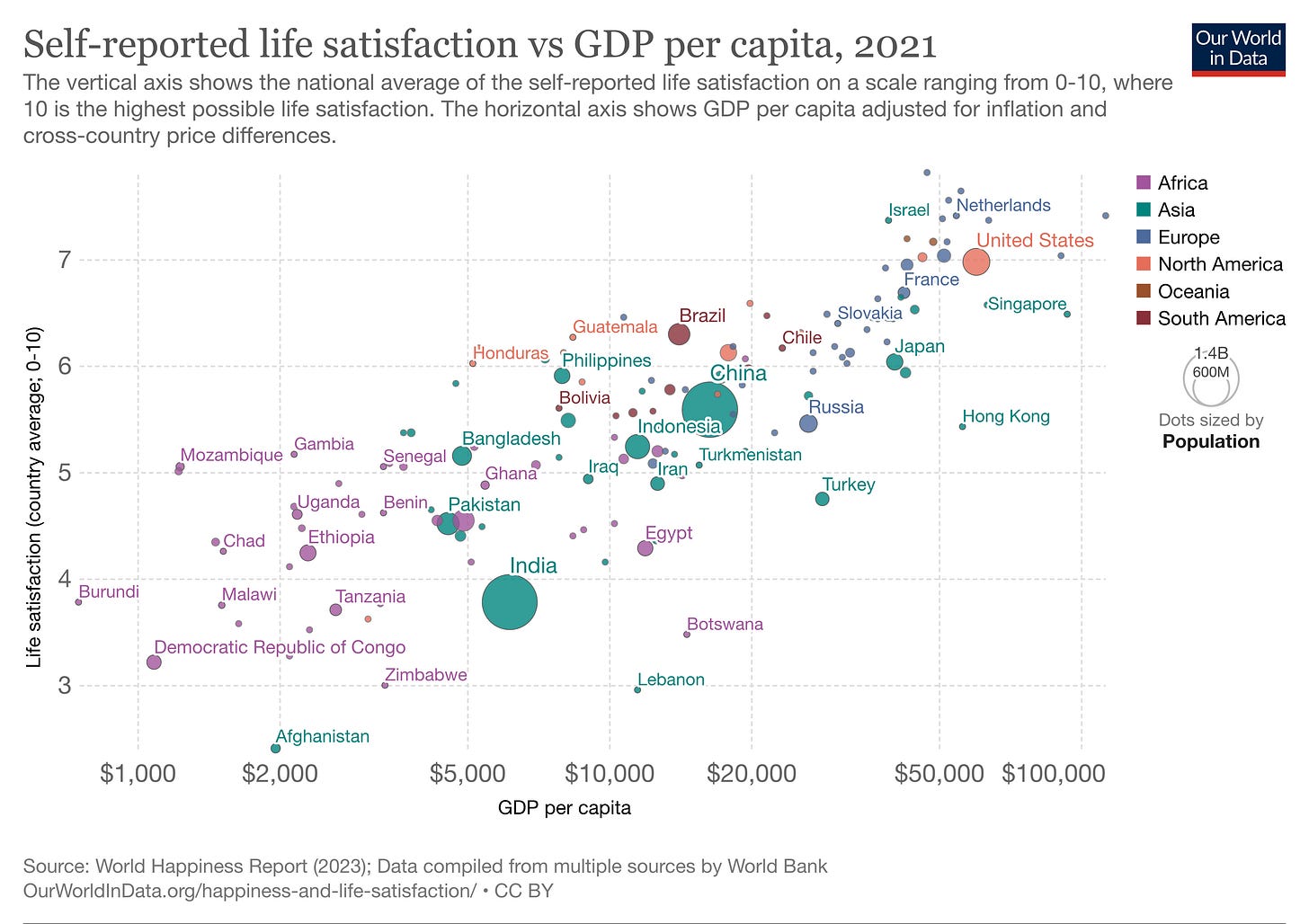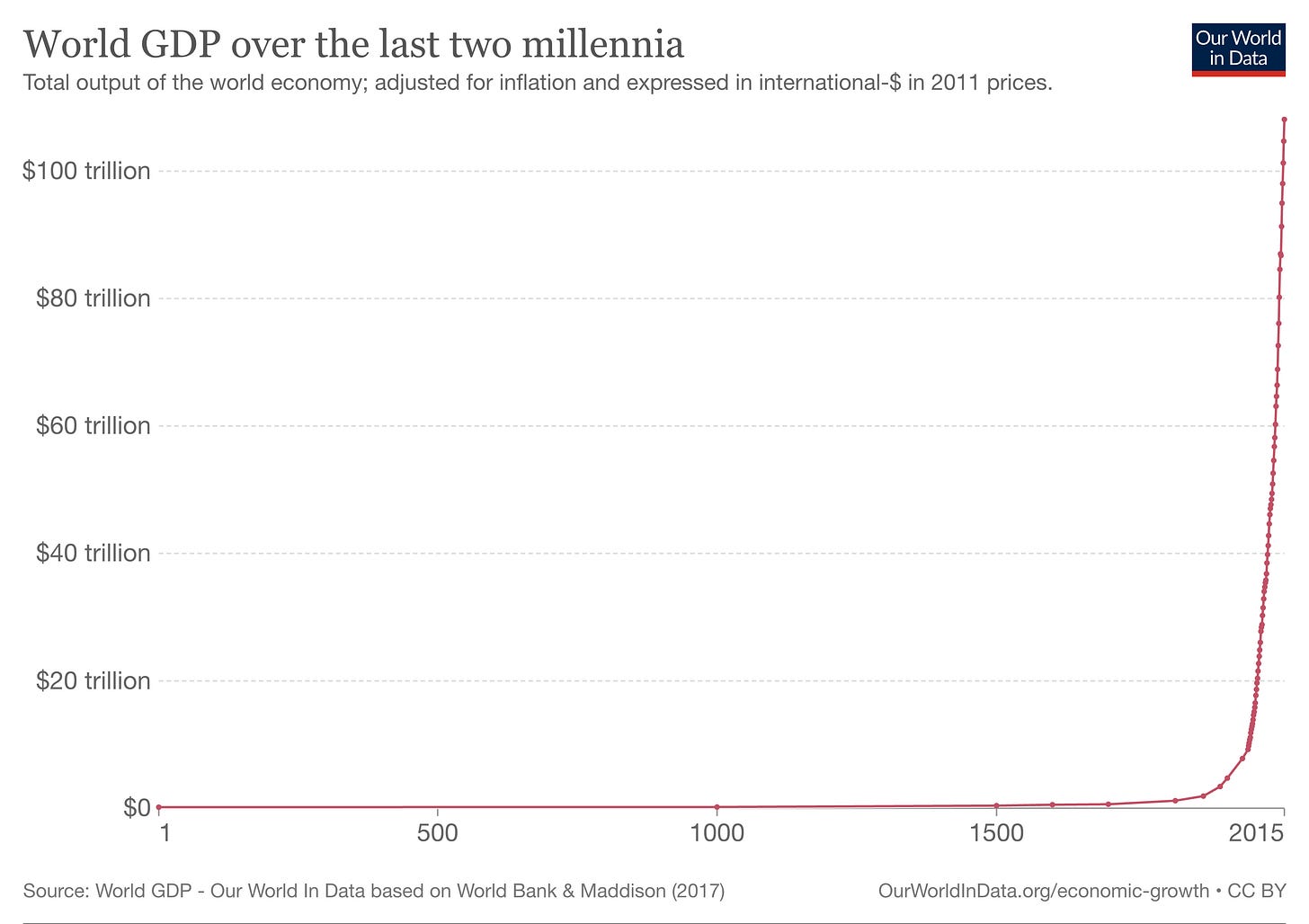Could economic growth solve all our problems?
If we want a prosperous future in the long term, we must know how to define it.
For a long time, I have wondered whether high enough economic growth would solve all our challenges. Interestingly, it might.
Strong economic growth would not only create well-paying jobs, but it would lift the standards of living for everyone and provide a larger pie to allocate to those in need. A lack of resources and economic hardship have fuelled most wars and given countless dictators arguments to invade another country or initiate aggression toward a specific population segment.
We have learned that only once the standard of living reaches a high enough level can we start thinking of the commons, the climate, and generally the long-term future beyond our immediate needs. It's hard to argue why we should not cut down the last piece of forest or burn dirty coal if that's the only available means to heat our house or cook our food.
Crucially, even liberal democracy grinds to a halt without economic growth. If there's no growth and you want to reallocate resources, you must take them from another important cause. Without economic growth, politics becomes a zero-sum game.
Economic growth allows us to invest in science and arts, cure diseases, and travel to the stars. It's the ultimate enabler. Once you start thinking about growth, Robert Lucas, a Nobel-prize-winning economist, wrote, "It is hard to think about anything else."
The neoclassical growth theory explains economic growth as the interaction of labor, capital, and technology, known as the factors of production. Technology is our only real lever to drive significantly faster economic growth since it's harder to increase capital accumulation or labor force growth. Technology means doing more with less. It creates growth through productivity gains. Economists call this Total Factor Productivity (TFP). TFP is calculated as a residual by taking capital and labor increases out of GDP growth. Economic growth via the advancement of technology is our only means to escape a zero-sum world in the long term.
When evaluating a particular future path for our liberal democratic society, potential GDP growth might be one of the better long-term measures of how good a specific path might be for us. Many other important outcomes we measure are downstream from economic growth. Focusing on economic growth allows us to measure different futures against each other with a common currency.
There's a lot we don't know and can argue about, but it's safe to say economic growth is one of the better things we have going for us.


